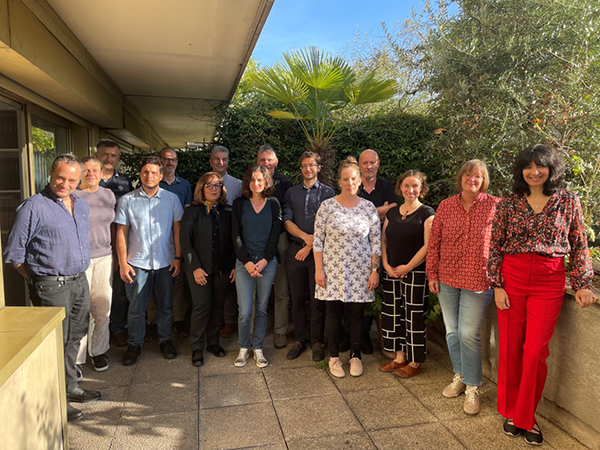
16th Meeting of the Joint EPPO/IOBC Panel on Biological Control Agents
Paris, France, 2023-10-10/12
The Joint EPPO/IOBC Panel on Biological control agents mainly works on the safety aspects of introduction and use of biological control agents and develops Standards on the regulation of their introductions. One of the main tasks of the Panel is to develop a ‘positive list’ of ‘safe’ biological control agents for which a simplified procedure of import and releases in the EPPO region could be accepted.

Additions to PM 6/3 Biological control agents safely used in the EPPO region
The Panel recommended the addition of Tamarixia dryi (Hymenoptera: Eulophidae) to PM 6/3, Appendix 2 which lists the classical biological control agents (BCAs) successfully established in the EPPO region. Tamarixia dryi is a parasitoid of Trioza erytreae (Hemiptera: Triozidae, EPPO A2 List) a vector of huanglongbing (EPPO A1 List). The dossier will be presented to the Working Party on Phytosanitary Regulations in 2024 accompanied by an explanatory document reflecting the Panel’s discussion on the potential listing of this parasitoid.
Guidance on search terms
The Panel agreed to develop additional guidance on search terms to use when compiling a dossier for consideration for listing in the EPPO Standard PM 6/3. This will provide applicants with information on the minimum search terms required for a comprehensive search on potential adverse effects. Once finalised, this additional guidance will be included in the application forms of the document 23-28702 ‘Procedure for amendments to the list of biological control agents safely used in the EPPO region (EPPO Standard PM 6/3) (‘Positive List’)’.
Definition of the term native
The Panel considered it would be useful to include a definition of native in EPPO PM 6 Standards and in the application form for considering a biological control agent for listing in the positive list. The Panel agreed that the definition detailed in Castella et al. (2022)*: native species (also called indigenous) species, meaning that they originate from and have evolved in a local area over a long period of time is the most suitable definition for the Panel to use.
Standards
The Panel considered whether there was a need to update PM 6/4 Decision-support scheme for import and release of biological control agents of plant pests following several assessments of the scheme. The Panel concluded, at this time, that the Decision-support scheme remains fit for purpose.
The Panel reviewed an update of the EPPO Standard PM 6/2(3) Import and release of non-indigenous biological control agents. The draft revision includes an elaborated scope, editorial changes to the introduction, an update on the information that an assessment should include and an update of the supporting guidance. The subgroup responsible for the Standard will address comments made by the Panel with the objective of sending the Standard for country consultation in 2024.
The Panel agreed to develop a new Standard on host specificity testing of invertebrate biological control agents for invertebrate pests. This Standard will provide guidance on the method to assess the host specificity of an invertebrate biological control agent including the selection and maintenance of non-target hosts. A draft structure was discussed, and this will be developed further with a sub-group of experts.
The Panel agreed to develop a new Standard on the assessment of establishment potential of invertebrate biological control agents. This Standard will focus on augmentative biological control agents. The aim of the Standard is to provide useful guidance for researchers, enabling them to better tailor their experiments and identify suitable biological control agents, and regulators, informing their decision on whether a biological control agent is safe to release.
Information
The Panel reviewed articles of relevance for biological control included in the EPPO Reporting Service. The Panel was updated on some ongoing work with EPPO Global database, where biological control agents are being linked with their target pest(s). The Panel noted the use of webinars in disseminating information to a wide audience and agreed to explore the use of webinars to highlight the importance of EPPO PM 6 Standards.
________
* Castella C, Orsat C, Marcdargent M, Malausa T, Desneux N, De Clercq P, Pappas M, Stenberg JA, Roques N (2022) Study on the Union’s situation and options regarding invertebrate biological control agents for the use in plant health and plant protection. European Commission, DG SANTE.
